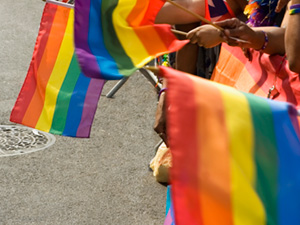Language: Spanish
Limónese Creole (Limón Province on the Caribbean coast)
English is also widely used, especially in areas frequented by tourists.
Climate: Like most equatorial countries, Costa Rica only has two seasons. The summer (or dry) season is December to April. The winter (or wet) season is May to November, with September being the peak of the Atlantic hurricane season.
Being just north of the equator, it's tropical year round with daily highs averaging 26–28ºC, and lows around 17–18ºC.
But Costa Rica also has a number of microclimates dictated by elevation and topography. The Guanacaste Region in the northwest is the dry region, experiencing little rain at any time of year and sporting fantastic Pacific beaches, as well as volcanic forest parks near the Nicaraguan border. In contrast, the Caribbean Coastal Region on the eastern slopes of the Central Cordillera receives almost 5,000 mm of rain annually.
Time zone: GMT -6
International phone code: +506
Currency: Costa Rican colón
Capital: San José
Transportation: Most travellers (including Canadian and US citizens) do not require a visa and can remain in the country for 90 days. If you're arriving from any of the neighbouring Central American counties, certification of a Yellow Fever vaccination is required.
During the tourist season (December–April), Juan Santamaría Airport (SJO), located close to the capital city of San José, is serviced daily by most major airlines.
For the more adventurous, the Interamericana, or Pan-American Highway, stretches almost 48,000km from Alaska to Tierra del Fuego, and Costa Rica is more or less the halfway point.
Gay Costa Rica:
Spanish colonization — and its consort, the Catholic Church — has left a lingering shadow on most of Central and South America.
Thankfully, post-colonial legal reforms have helped to lift that shadow. Costa Rica passed legislation in 1971 that codified a universal age of consent of 15. And while still prohibiting "scandalous sodomy" (is there any other kind?) the law recognized the legal status of same-sex acts between consenting adults.
Since 1998, sexual orientation has received protection under the Costa Rican constitution and, in 2008, then-President Oscar Arias Sanchez signed an executive order designating May 17 as the National Day Against Homophobia.
In July 2013 the legislature legalized same-sex civil unions — although it may have been accidental. A change in language between readings of the bill went largely unnoticed by conservative members until after the vote. The more ardent opposition called on President Laura Chinchilla to veto the bill. Although a strong supporter of traditional marriage herself, Chinchilla declined to use her executive veto and signed the bill into law.
In the 1990s, the Costa Rican Catholic Church launched a campaign against LGBT tourism, claiming it was a cover for sex tourism. Denied methods of torture frowned upon since the Inquisition, the campaign was unsuccessful.
In the last two decades, San José has embraced the LGBT tourist dollar and blossomed into a very popular tropical gay getaway. In addition to a healthy array of bars, clubs, and saunas for LGBT locals and travellers, the city also boasts a gay bookstore, community centre, and a handful of gay-owned B&Bs.
But who goes to Costa Rica strictly for the big city nightlife? At least half the country's tourist trade focuses on ecotourism (despite what the Catholic Church may want to believe) and our tourist dollar has given rise to gay and gay-friendly adventure tours nationwide.
One of the most beautiful Pacific beaches, as well as some of the best whitewater rafting, is said to be located along the south coast between the town of Quepos and Manuel Antonio National Park, about a two-hour drive south of the capital. Playa Manuel Antonio has long been a popular gay vacation spot with locals and travellers alike, and has been historically credited with something of a gay section. Security from nearby hotels, however, is rumoured to be patrolling this area with increased vigilance. Although they just might be spies for the Catholic Church trying to sneak a peak.




S(tvnnz432g3ki2k45wjig5o45))/content/user/images/Dest/257/29943-140-115.jpg)
S(tvnnz432g3ki2k45wjig5o45))/content/user/images/Dest/45/12397-140-115.png)
S(tvnnz432g3ki2k45wjig5o45))/content/user/images/Dest/253/29999-140-115.jpg)
S(tvnnz432g3ki2k45wjig5o45))/content/user/images/Dest/177/22111-140-115.png)
S(tvnnz432g3ki2k45wjig5o45))/content/user/images/Dest/262/40619-140-115.png) Manuel Antonio
Manuel AntonioS(tvnnz432g3ki2k45wjig5o45))/content/user/images/Dest/31/30859-140-115.jpg) San Jose
San Jose